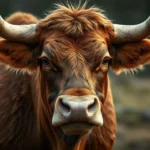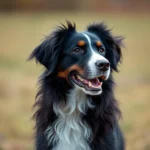
Introduction
Ridgeback dogs are a fascinating group of canine breeds known for their unique physical characteristics and rich history. Understanding the different types of Ridgeback dogs is essential for potential owners and dog enthusiasts. Each breed brings its own set of traits, temperaments, and care requirements, making it crucial to choose the right one for your lifestyle. In this article, we’ll explore various types of Ridgeback dogs, their characteristics, and what makes each breed special.
What is a Ridgeback Dog?
Ridgeback dogs are defined by their distinctive physical trait: a ridge of hair that runs along their spine in the opposite direction to the rest of their coat. This characteristic is significant in identifying the different types of Ridgeback dogs. The origin of Ridgebacks can be traced back to Southern Africa, where they were initially bred by the Khoikhoi people for hunting lions and other game.
Historically, Ridgebacks served as loyal companions and hunters, showcasing their intelligence and adaptability. General characteristics of Ridgeback dogs include medium to large size, strong athletic builds, and a short, dense coat that comes in various shades, primarily wheaten. They are known for their loyalty, courage, and independent nature, making them excellent family pets when properly trained and socialized.
Types of Ridgeback Dogs
Understanding the different types of Ridgeback dogs is essential for potential owners. Each breed has unique traits and characteristics that can influence your decision when choosing a dog.
Rhodesian Ridgeback
The Rhodesian Ridgeback is perhaps the most recognized type of Ridgeback. Originating from Zimbabwe, these dogs were bred to hunt lions and other large game.
Description and Characteristics: Rhodesian Ridgebacks have a strong, muscular build and a distinctive ridge of hair along their backs. Their coat is short and weather-resistant, usually in shades of light wheaten to red wheaten.
Temperament and Personality Traits: Known for their loyalty and protective instincts, Rhodesian Ridgebacks are affectionate with family members but can be reserved around strangers. Their independent nature means they may not always follow commands, so consistent training is essential.
Health Considerations: Common health issues include hip dysplasia and certain skin conditions. Regular veterinary check-ups and a healthy diet are crucial for their well-being.
Ideal Living Conditions: Rhodesian Ridgebacks thrive in homes with ample space to roam and play. They require regular exercise and enjoy outdoor activities, making them suitable for active families.
Thai Ridgeback
The Thai Ridgeback is a lesser-known breed that originates from Thailand. This breed is unique in its characteristics and appearance.
Description and Characteristics: Thai Ridgebacks are medium-sized dogs with a muscular build and a prominent ridge of hair on their backs. Their coat is short and can come in various colors, including black, blue, and red.
Unique Features Compared to Other Ridgebacks: Unlike the Rhodesian Ridgeback, the Thai Ridgeback has a more pronounced ridge and a slightly different body structure. They are also known for their distinctive ear shape, which can be either erect or folded.
Temperament and Personality Traits: Thai Ridgebacks are known to be loyal and protective of their families. They can be more reserved than other Ridgebacks, requiring socialization to develop friendly behaviors.
Health Considerations: Thai Ridgebacks are generally healthy, but they can be prone to certain genetic conditions. Regular health screenings are recommended.
Ideal Living Conditions: This breed is well-suited for families with a secure yard, as they are known to be escape artists. They require moderate exercise and enjoy interactive playtime with their owners.
Phu Quoc Ridgeback
The Phu Quoc Ridgeback is a unique breed from Vietnam, recognized for its distinct appearance and characteristics.
Description and Characteristics: Phu Quoc Ridgebacks are medium-sized dogs with a muscular build and a short, dense coat. Their ridge is less pronounced than that of other Ridgebacks, and their coat can come in various colors, including brown and black.
Comparison to the Rhodesian and Thai Ridgebacks: While similar in some ways to the Rhodesian and Thai Ridgebacks, the Phu Quoc Ridgeback is smaller and has a different temperament. They are known for their agility and intelligence, making them excellent companions for active families.
Temperament and Personality Traits: Phu Quoc Ridgebacks are friendly and loyal, often forming strong bonds with their families. They are playful and energetic, requiring regular exercise and mental stimulation.
Health Considerations: Like other Ridgebacks, the Phu Quoc breed is generally healthy but can be prone to hip dysplasia and certain skin issues. Regular vet visits and a balanced diet are essential.
Ideal Living Conditions: This breed thrives in an active home environment where they can participate in outdoor activities. They benefit from having a secure yard and enjoy playing with children and other pets.
Other Lesser-Known Ridgeback Breeds
In addition to the well-known breeds, there are several other types of Ridgeback dogs that may not be as popular but are still worth mentioning.
- Catahoula Leopard Dog: Often mistaken for a Ridgeback due to its unique coat pattern and ridge, this breed is known for its herding abilities and makes an excellent family pet.
- Kuchi Dog: Originally bred for livestock guarding in Afghanistan, the Kuchi has a ridge and shares some traits with traditional Ridgebacks, including loyalty and protectiveness.
These lesser-known Ridgebacks may not be as widely recognized but possess unique characteristics that make them special companions.
Common Characteristics of Ridgeback Dogs
Regardless of the specific breed, Ridgeback dogs share several common characteristics.
Physical Traits Common to Ridgebacks: Most Ridgebacks are medium to large in size, with a strong, athletic build. They typically have short coats, which require minimal grooming.
Temperament Traits and Behavioral Tendencies: Ridgebacks are known for their independence and loyalty. They are protective of their families and can be wary of strangers. Socialization is crucial to ensure they develop friendly behaviors.
Energy Levels and Activity Requirements: Ridgebacks are active dogs that require regular exercise. Daily walks, playtime, and mental stimulation are essential to keep them happy and healthy.
Grooming Needs: Due to their short coats, Ridgebacks require minimal grooming. Regular brushing will help reduce shedding, and occasional baths will keep their coats clean.
Choosing the Right Ridgeback for You
When considering a Ridgeback, several factors can help you determine which breed is right for your lifestyle.
Factors to Consider When Selecting a Ridgeback Breed: Evaluate your living situation, activity level, and the time you can dedicate to training and socialization. Each Ridgeback breed has unique needs that should align with your lifestyle.
Lifestyle Compatibility with Different Ridgebacks: Some Ridgeback breeds may be better suited for families with children, while others may excel in more active environments. Understanding each breed’s temperament will help you make an informed decision.
Recommendations for First-Time Dog Owners: If you’re a first-time dog owner, consider starting with a breed that is known for being more trainable and social. The Rhodesian Ridgeback, for instance, may be a better fit for families with prior dog experience.
Training and Socialization
Training and socialization are crucial aspects of owning a Ridgeback.
Importance of Training for Ridgeback Breeds: Due to their independent nature, Ridgebacks require consistent and positive training methods. Proper training will help them become well-adjusted family members and prevent behavioral issues.
Effective Training Techniques Specific to Ridgebacks: Use positive reinforcement techniques, such as treats and praise, to encourage desired behaviors. Start training early and be patient, as Ridgebacks may take time to respond to commands.
Socialization Tips and Best Practices: Introduce your Ridgeback to various people, animals, and environments from an early age. Gradual exposure will help them develop confidence and reduce fearfulness in new situations.
Health and Wellness of Ridgeback Dogs
Maintaining the health and wellness of your Ridgeback is essential for their overall quality of life.
Common Health Issues Across Ridgeback Breeds: Many Ridgebacks may face similar health concerns, including hip dysplasia, allergies, and certain skin conditions. Awareness of these issues can help you take preventative measures.
Preventative Care and Regular Health Check-ups: Regular veterinary check-ups are crucial for early detection of health issues. Keep your Ridgeback up to date on vaccinations, flea and tick prevention, and dental care.
Nutritional Needs and Dietary Recommendations: A balanced diet is vital for your Ridgeback’s health. Consult your veterinarian for recommendations on the best food options based on your dog’s age, size, and activity level.
Conclusion
In summary, understanding the different types of Ridgeback dogs is fundamental for potential owners. Each breed offers unique characteristics and traits that cater to various lifestyles. By recognizing these differences, you can make an informed decision on which Ridgeback breed is the best fit for you and your family.
Whether you choose the loyal Rhodesian Ridgeback, the unique Thai Ridgeback, or the agile Phu Quoc Ridgeback, each breed promises a loving and loyal companion. Take the time to research the specific needs and characteristics of each type, ensuring that your choice aligns with your lifestyle and preferences.
FAQs about Ridgeback Dogs
What are the main differences between the types of Ridgeback dogs?
The main differences lie in their size, temperament, and specific physical traits. For example, Rhodesian Ridgebacks are larger and more muscular, while Thai Ridgebacks are known for their unique ear shapes.
Are Ridgeback dogs good with children?
Most Ridgeback breeds are known to be good with children when properly socialized. Their protective nature makes them excellent family pets.
How much exercise do Ridgeback dogs need?
Ridgebacks are active dogs that require regular exercise, including daily walks and playtime. Aim for at least 60 minutes of physical activity each day.
Do Ridgebacks shed a lot?
Ridgebacks have short coats that shed moderately. Regular brushing will help manage shedding and keep their coat healthy.
Are Ridgebacks easy to train?
While Ridgebacks can be independent, they are trainable with positive reinforcement methods. Consistent training and early socialization are key to their success as family pets.









